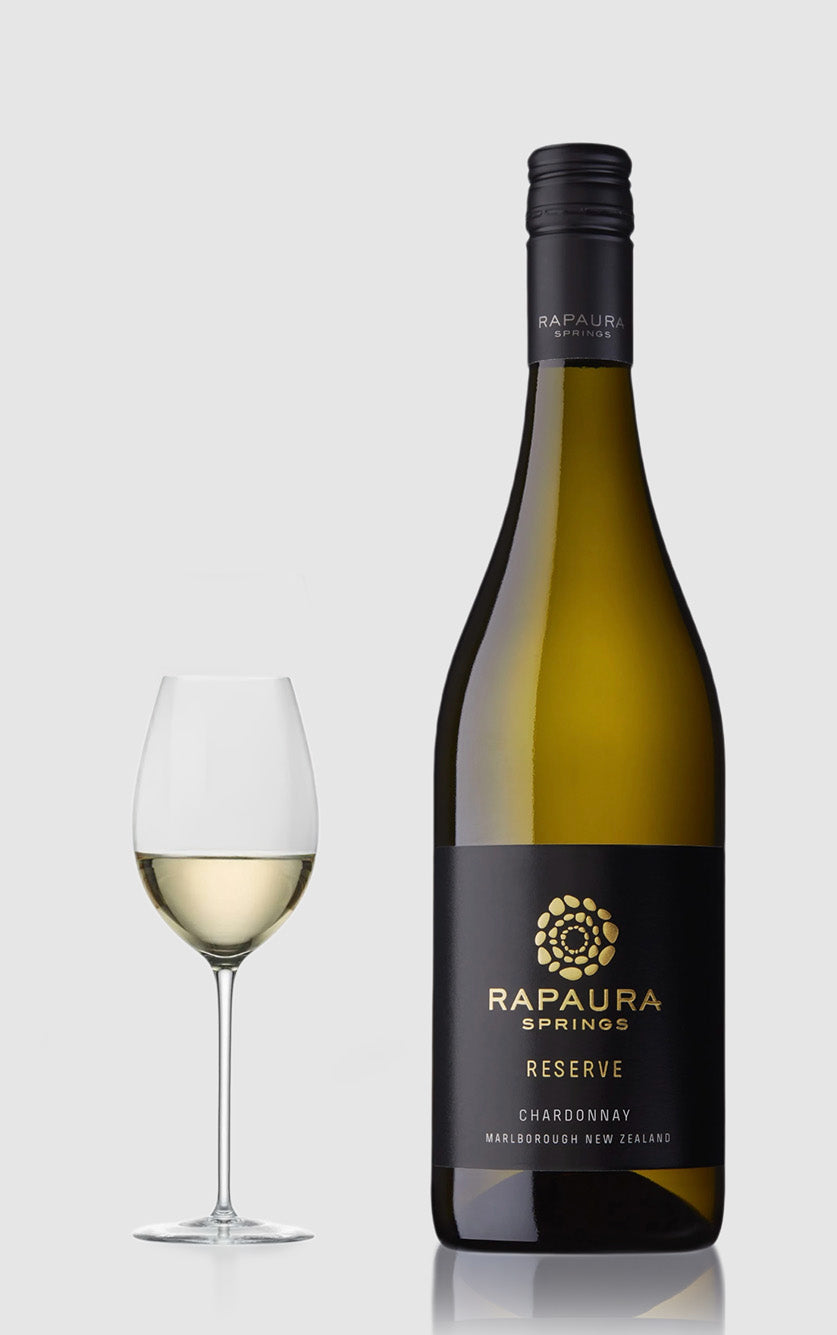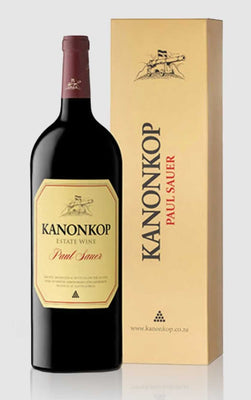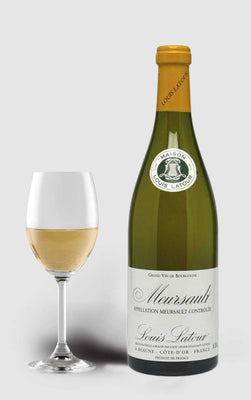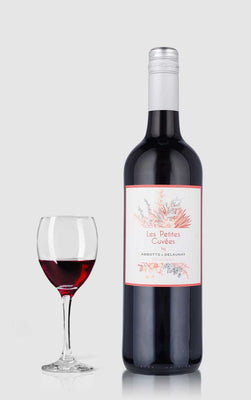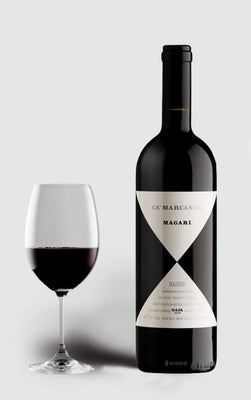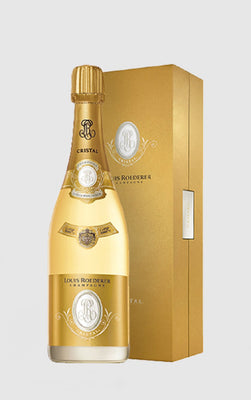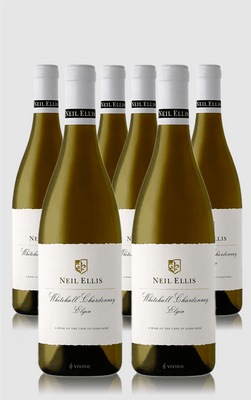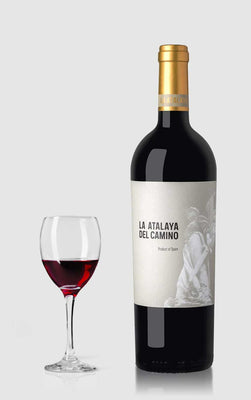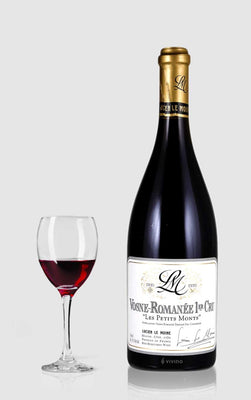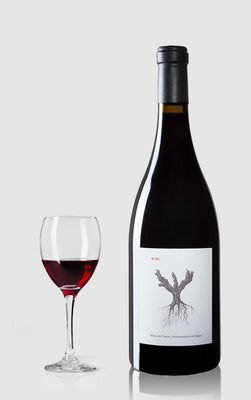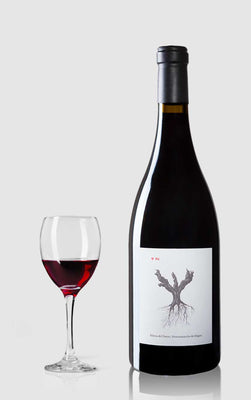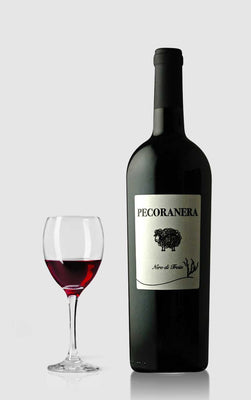Andre kategorier du måske vil kunne lide
Argentine Red Wine
-
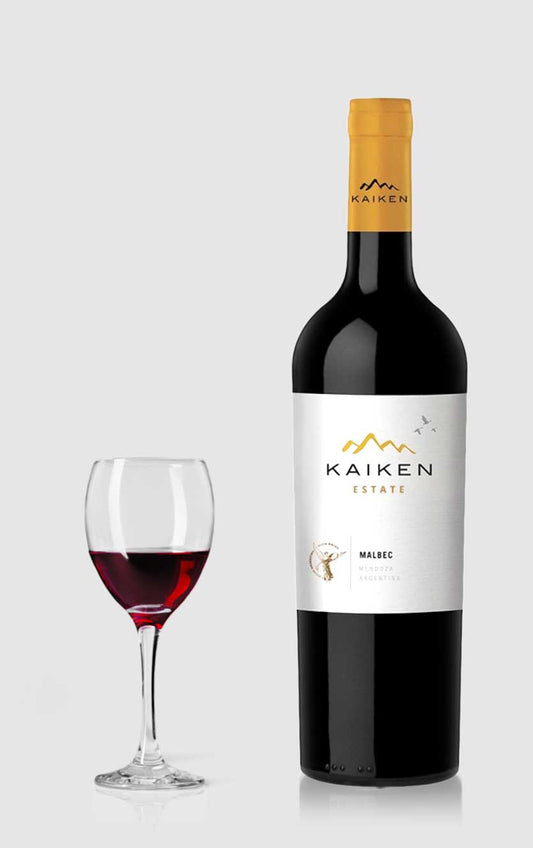 ★ 89 – DH WinesSold out
★ 89 – DH WinesSold outMalbec Kaiken Estate 2022 Mendoza
Vendor:Cheval des AndesRegular price 109,00 DKKRegular priceUnit price / per -
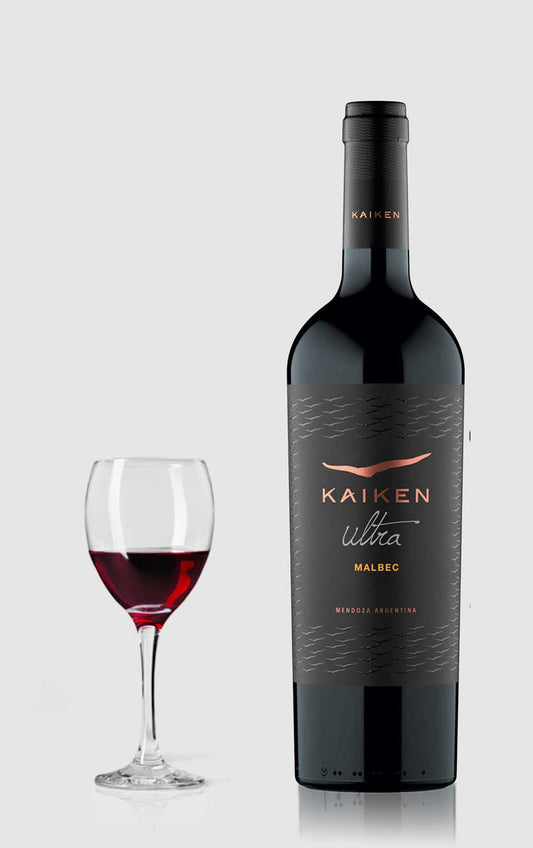 ★ 90 – DH Wines
★ 90 – DH WinesMalbec Ultra Uco Valley Kaiken Estate Argentina 2019
Vendor:Cheval des AndesRegular price 199,00 DKKRegular priceUnit price / per -
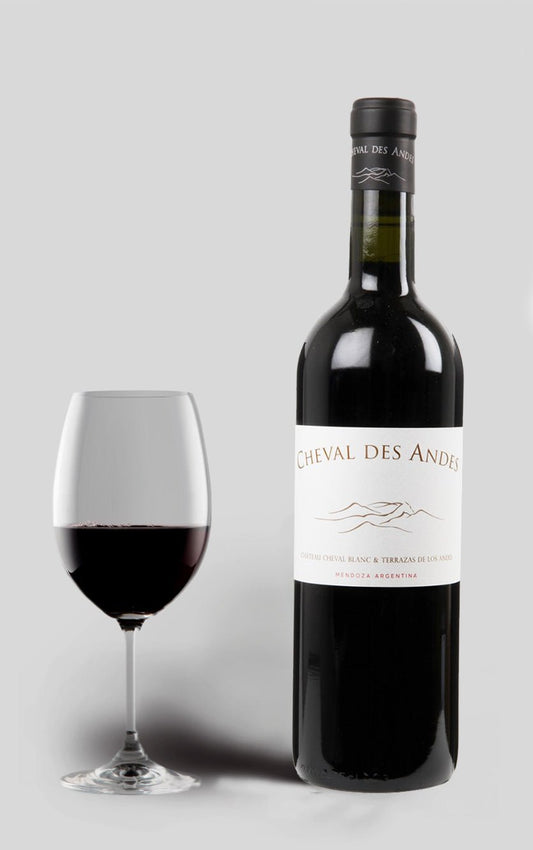 ★ 97 – Robert Parker★ 97 – James Suckling★ 95 – Wine Enthusiast★ 94 – DH Wines★ 93 – Decanter★ 4.7 – Vivino
★ 97 – Robert Parker★ 97 – James Suckling★ 95 – Wine Enthusiast★ 94 – DH Wines★ 93 – Decanter★ 4.7 – VivinoCheval des Andes Grand Cru Mendoza 2013
Vendor:Cheval des AndesRegular price 849,00 DKKRegular priceUnit price / per
Collection: Argentine Red Wine
Argentine red wine – Height, intensity and Malbec
In just a few decades, Argentina has positioned itself as the world's leading producer of quality Malbec. The country's unique combination of high-altitude vineyards, low humidity and warm hours of sunshine creates red wines with deep color, soft fruit and distinctive structure. The Mendoza region and its sub-regions in particular produce wines that balance ripe fruit with freshness and minerality.
The main red wine regions in Argentina
- Mendoza : The main red wine region. Malbec, Cabernet Sauvignon and Bonarda are grown here in both warm and cool microclimates.
- Uco Valley : Located 900–1500 m above sea level, complex and elegant wines with acidity, structure and terroir character are created here.
- Luján de Cuyo : A classic area with old vines and soft, fruit-driven Malbecs.
- Salta : Vineyards at altitudes of up to 3000 meters. Wines with extreme concentration, acidity and minerality – especially Malbec and Tannat.
- Patagonia : Southern climate yields Pinot Noir and Merlot in a cooler, more European style.
Malbec and other grapes
- Malbec : The dominant grape. Deep color, dark fruit, soft tannins and often vanilla or cocoa from the barrel. From light, fresh versions to structured top cuvées.
- Cabernet Sauvignon : Grown mainly in the high altitude areas of Mendoza, it produces firm, dark wines with potential for aging.
- Bonarda : A traditional variety that often produces round, juicy wines with low tannin and high color intensity.
- Syrah and Tempranillo : Used in blends and as single grape wines with spice and body.
Argentine winemakers are increasingly working with small plots, natural fermentation and limited barrel use to highlight the character of the grapes and soil.
Style and storage
Argentine red wine ranges from full-bodied and fruity everyday wines to complex, long-lasting Malbecs with tannin and finesse. Barrel aging varies – some wines see only steel tanks, while others are aged in French oak for up to 24 months. The best wines from the Uco Valley and Salta have a storage potential of 10–20 years and develop notes of tobacco, leather and spice.
Frequently Asked Questions About Argentine Red Wine
What is the difference between Argentine and French Malbec?
Argentine Malbec is often rounder, more fruity and approachable, while French Malbec (from Cahors) has higher tannin, darker fruit and more rustic character.
Can Argentine red wine be stored?
Yes. Top Malbec from Uco Valley, Salta and Luján de Cuyo can age for 10–20 years and develop great complexity over time.
Are all Argentine red wines strong?
No. Many are full-bodied and dark-fruited, but high-altitude wines from cooler microclimates can be elegant, fresh and mineral.
- Choosing a selection results in a full page refresh.
- Opens in a new window.
